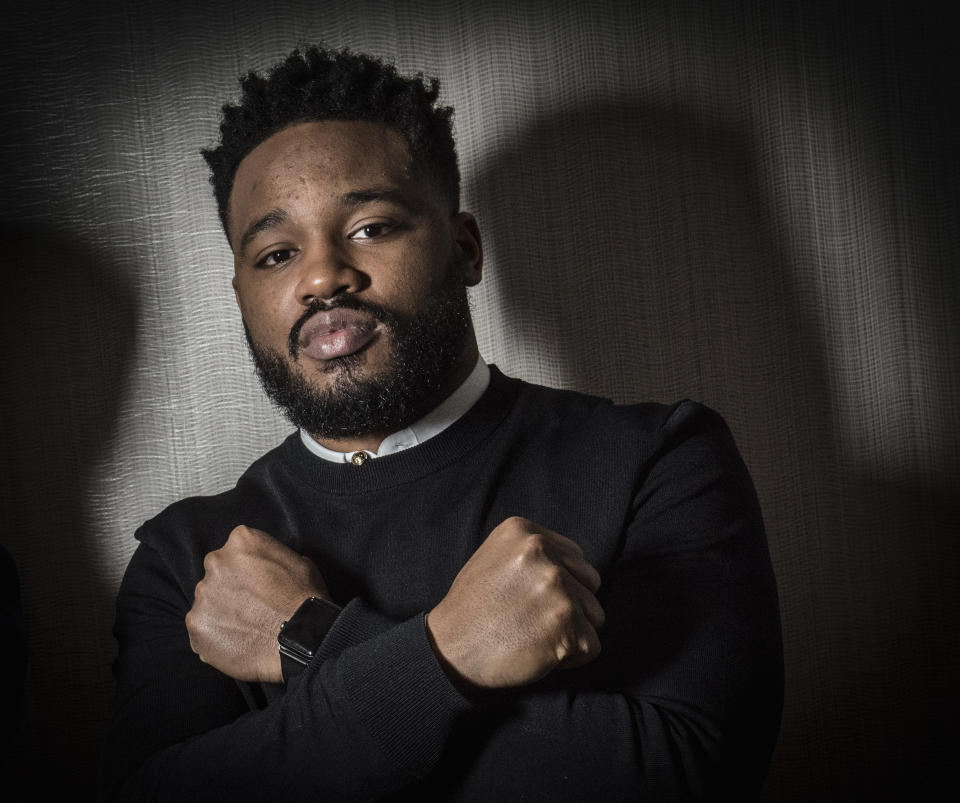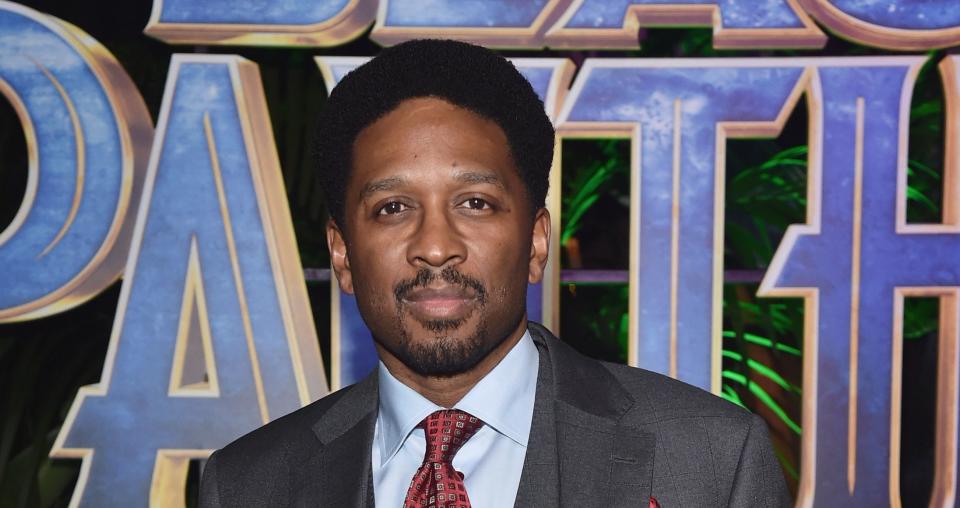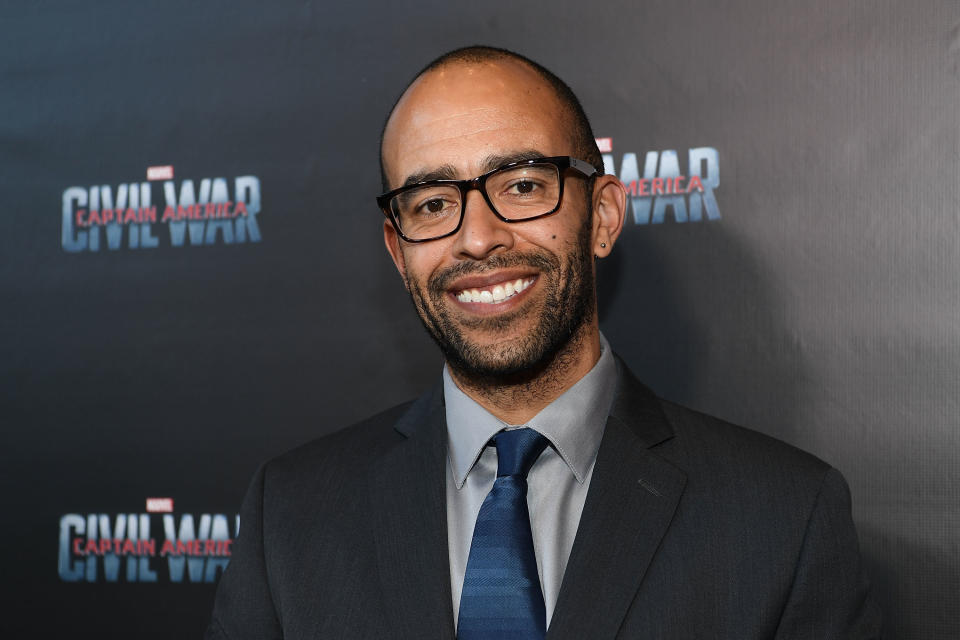'Black Panther' Actress Letitia Wright Hopes Shuri Inspires More Girls To Pursue STEM
Shuri is a gift.
The younger sister to T’Challa (aka the Black Panther) is an Afrofuturistic engineer who can build technologically advanced societies and fully heal spinal bullet wounds in less than 24 hours. She’s the most intelligent person in the Marvel Cinematic Universe and leads Wakanda, the most advanced society in the universe. She also happens to be a 16-year-old unapologetically black princess who isn’t afraid to tell a white man, “Don’t scare me like that colonizer.”
Shuri is the shit.
Letitia Wright, who plays everyone’s new favorite Disney princess in her breakout “Black Panther” role, told HuffPost how much it meant to both her and the film’s audiences for director Ryan Coogler and writer Joe Robert Cole to write Shuri as a multidimensional character.
“[Shuri] shows that when you have people coming together to just take time to make characters well-rounded, well-thought-out, not one way, amazing things like that happen,” the Guyanese actress told HuffPost. “Having a character arc and journey is refreshing, so it’s good writing ... Now there’s a breakthrough of [audiences] seeing people [they] relate to and that’s refreshing.”

Shuri lit up the screen with her carefree demeanor and unfiltered words each time she graced a scene. Her youthfulness was refreshing, yet her wisdom and courage shine through in the film as she guides Martin Freeman’s Everett Ross through an aerial battle while physically taking on another fight of her own.
Wright said even she was surprised at the boldness of blackness and the motherland shown on-screen. But from comic book pages to the MCU, the marriage of positive images of Africans with technology in “Black Panther” is important for fans to see, she said.
“Even reflecting on it now, I can see little glimpses of when they go down to the Great Mound and go down to Shuri’s lab how beautiful that is. Just seeing that there’s young kids in Shuri’s lab, teenagers and people coming together to create technology. That’s beautiful,” she said. “All together, it means a lot to see the continent in that way and see the motherland in that way ’cause it’s such a beautiful place.”
The actress also said she hopes young girls will unlock their potential when watching Shuri, especially when it comes to STEM, where women of color made up less than 10 percent of working scientists and engineers in the U.S. in 2015.
“I hope it inspires them and I hope it does [so] positively. I hope it sparks the next person,” Wright told HuffPost.
This isn’t the last fans will see of Shuri. The princess of Wakanda will also have “a cool little part” in “Avengers: Infinity War,” premiering in May. And, fingers crossed, maybe fans will get to see Shuri as the Black Panther one day.
Also on HuffPost
Ryan Coogler

“You see media that can make you feel ashamed to be African. They can make it feel like it’s a shameful thing,” Coogler said. “I think it’s not. For me, the biggest thing on this was making this awesome, globe-trotting political thriller that just happens to be about Africans. It’s the best way to accomplish that goal and that’s what Marvel was interested in doing — that’s what I was interested in doing.”
Hannah Beachler

"I drew from a lot of different places, I think, and keeping the tradition involved in the aesthetic and the design language was of the utmost importance, because it’s about black representation, the black future and agency using architecture and history and science and myth and biomimetics, and biomorphosis, and all of that went into the design," she told Film School Rejects.
Joe Robert Cole

“For so long there was a limited pool of people who had the opportunity to tell stories so that limited the perspective of the story being told. I think there is a fatigue with that perspective,” Cole told The Guardian. “This is a movie that steps out of that in an amazing way. There’s a hunger for new lenses on the world, new ways of seeing stories. We spoke from our perspective."
Ruth E. Carter
![Carter, a legendary costume designer who's worked on dozens of classic films, is the mastermind behind the film's wardrobe. She found inspiration from tribes on the continent -- including the Maasai, the Dogon and the Chakana -- and put an Afrofuturistic twist on the costumes. <br /><br />"We wanted to honor [culture and tradition] in this futuristic way and a lot of the details of the indigenous African tribes easily translate into a futuristic model so that part of it was super fun to do and it was like no one had even really thought of it like that," she told HuffPost.](https://s.yimg.com/ny/api/res/1.2/72kBoRyZto0FRhStyY.WqQ--/YXBwaWQ9aGlnaGxhbmRlcjt3PTk2MA--/https://img.huffingtonpost.com/asset/5a838e211e00002c007ab9d6.jpeg?ops=crop_0_48_2831_2185)
"We wanted to honor [culture and tradition] in this futuristic way and a lot of the details of the indigenous African tribes easily translate into a futuristic model so that part of it was super fun to do and it was like no one had even really thought of it like that," she told HuffPost.
Nate Moore

"There's such an underserved population of people just aching for positive images of themselves on screen," he said. "In this case, obviously the African-American and African communities seeing representations like T'Challa and Nakia and Okoye and all these great characters in the context of doing good and being heroic is valuable because those images don't exist that much. And so I think and I hope this movie can be a watershed to see other films like this."
Douriean Fletcher

"Ruth liked what I consider to be an ancient yet futuristic aesthetic and with her understanding of my skill set, creativity, innovation and work ethic, she saw it fit for me to take on such a critical role for this project," she told the Los Angeles Sentinel.
Love HuffPost? Become a founding member of HuffPost Plus today.
This article originally appeared on HuffPost.

